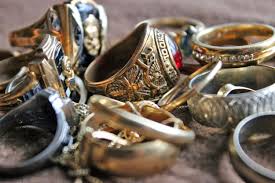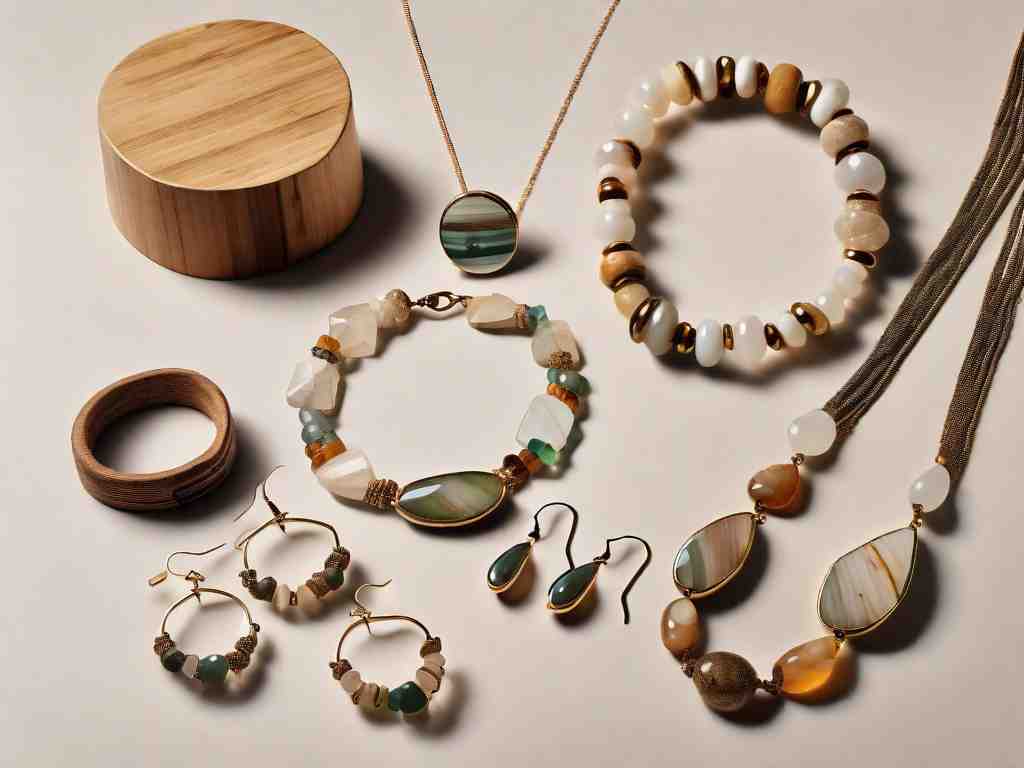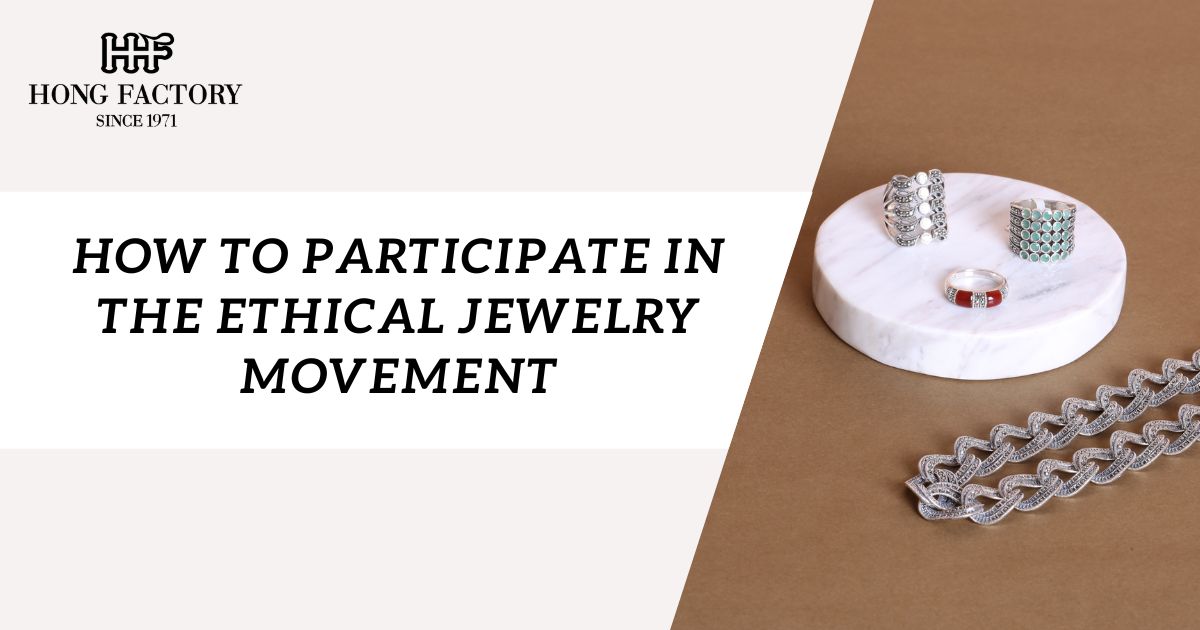How to Participate in the Ethical Jewelry
The ethical jewelry movement is gaining momentum as consumers become more conscious of the environmental and social impact of their purchases. Ethical jewelry prioritizes sustainability, fair labor practices, and responsible sourcing, ensuring that beauty and ethics go hand in hand.
If you want to make a difference through your jewelry choices, here are some ways to actively participate in the ethical jewelry movement.
1. Educate Yourself on Ethical Jewelry
![]()
Understanding what makes jewelry ethical is the first step toward making informed decisions.
Key Aspects of Ethical Jewelry:
- Fair Labor Practices – Jewelry made under safe working conditions with fair wages for artisans.
- Sustainable Materials – Use of recycled metals, fair-trade gemstones, and lab-grown diamonds.
- Transparency in Sourcing – Brands that disclose where and how their materials are sourced.
- Eco-Friendly Production – Manufacturing processes that minimize waste and environmental damage.
2. Support Ethical Jewelry Brands
Choosing brands that prioritize ethical practices helps promote sustainability in the industry.
What to Look For in a Brand:
- Certified Ethical Standards – Look for certifications like Fairmined, Responsible Jewellery Council (RJC), or Fair Trade Gold.
- Use of Recycled or Upcycled Materials – Reduces the demand for newly mined metals and gemstones.
- Transparent Supply Chains – Brands that openly share their sourcing and labor practices.
Examples of Ethical Jewelry Brands:
- Vrai – Offers carbon-neutral lab-grown diamonds.
- Mejuri – Uses responsibly sourced gold and ethical manufacturing.
- Soko – Supports artisan communities in Kenya through sustainable production.
- Brilliant Earth – Focuses on conflict-free diamonds and fair-trade gold.
3. Choose Recycled and Fair-Trade Materials
Opting for jewelry made from recycled or ethically sourced materials reduces environmental impact.
Sustainable Material Choices:
- Recycled Gold & Silver – Repurposed precious metals minimize the need for new mining.
- Lab-Grown Diamonds – Eco-friendly and conflict-free alternatives to mined diamonds.
- Fair-Trade Gemstones – Ensures ethical mining practices and fair wages for workers.
- Upcycled Jewelry – Repurposing old pieces into new designs.
4. Buy Second-Hand & Vintage Jewelry
Purchasing pre-owned jewelry extends the life cycle of beautiful pieces while reducing waste.
Where to Find Ethical Second-Hand Jewelry:
- Antique and Vintage Stores – Timeless, high-quality pieces with character.
- Online Marketplaces – Platforms like The RealReal, Poshmark, and Etsy offer second-hand jewelry.
- Jewelry Swaps – Organize or participate in swap events to refresh your collection sustainably.
5. Repair & Repurpose Old Jewelry

Instead of discarding broken or outdated jewelry, consider repairing or transforming it.
Ways to Upcycle Jewelry:
- Convert Old Necklaces into Bracelets or Anklets.
- Reset Gemstones into New Settings.
- Combine Different Jewelry Pieces into Unique Designs.
- Engrave or Personalize Old Jewelry for a Fresh Look.
6. Ask Brands About Their Ethical Practices
Holding jewelry brands accountable encourages them to maintain ethical standards.
Questions to Ask Before Buying:
- Where are your materials sourced from?
- Do you use recycled or fair-trade materials?
- How do you ensure fair labor practices?
- What sustainability initiatives do you support?
7. Choose Timeless Over Trendy
Fast-fashion jewelry often leads to excessive waste. Investing in timeless, high-quality pieces ensures durability and reduces the need for constant replacements.
Timeless Jewelry Staples:
- Classic Gold or Silver Hoops.
- Diamond or Gemstone Stud Earrings.
- Minimalist Pendant Necklaces.
- Stackable Rings with Ethical Stones.
8. Spread Awareness & Advocate for Change
Encouraging ethical practices in the jewelry industry requires collective action.
How to Advocate for Ethical Jewelry:
- Share Information – Educate friends and family about ethical jewelry choices.
- Support Ethical Jewelry Movements – Follow and engage with sustainable jewelry initiatives.
- Ask Jewelers for Ethical Options – Demand more responsible sourcing in the market.
9. Gift Ethical Jewelry
Sustainable jewelry makes for meaningful, responsible gifts.
Best Ethical Jewelry Gift Ideas:
- Personalized Recycled Gold Charms.
- Lab-Grown Diamond or Moissanite Rings.
- Handcrafted Jewelry from Local Artisans.
- Vintage Jewelry with a Story.
10. Recycle & Responsibly Dispose of Old Jewelry
If you need to part with jewelry, do so sustainably.
Eco-Friendly Disposal Methods:
- Sell or Donate – Pass pieces on to someone who will appreciate them.
- Trade-In Programs – Many jewelers offer recycling or trade-in services.
- Repurpose Materials – Work with a jeweler to transform old pieces into something new.
11. The Future of Ethical Jewelry

As consumer awareness grows, ethical jewelry is becoming a standard rather than a niche market. Innovations in material sourcing, technology, and business models are helping to make ethical jewelry more accessible and affordable.
Emerging Trends in Ethical Jewelry:
- Blockchain for Transparency – Brands are using blockchain technology to track and verify ethical sourcing.
- Increased Use of Lab-Grown Diamonds – As technology advances, lab-grown diamonds are becoming more affordable and high-quality.
- Greater Consumer Demand for Ethical Practices – More shoppers are demanding transparency, pushing brands to adopt sustainable methods.
12. How to Encourage Ethical Practices in the Industry
If you’re passionate about ethical jewelry, consider actively supporting and advocating for change within the industry.
Ways to Get Involved:
- Follow Ethical Jewelry Influencers & Activists.
- Sign Petitions Supporting Fair Labor in Mining.
- Engage with Ethical Jewelry Brands on Social Media.
- Attend Events & Conferences Focused on Sustainable Fashion.
Participating in the ethical jewelry movement means making mindful choices that support sustainability, fair labor, and responsible sourcing. By choosing ethical brands, repurposing old jewelry, and educating others, you contribute to a more conscious and responsible jewelry industry. Every small action leads to a significant impact.
